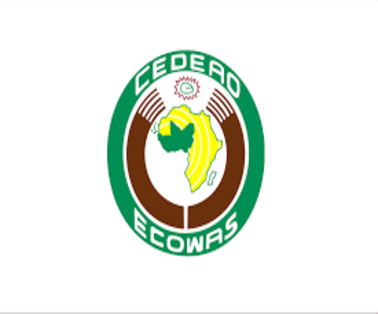The Ministers of the Financial Action Task Force (FATF) reaffirmed their unwavering commitment to combat financial crime, and fully support the FATF as the global standard-setter for preventing and combatting money laundering, terrorist financing and the financing of the proliferation of weapons of mass destruction
Key Points
- During this biennial meeting in Washington DC, members recognised the achievements of the Singapore Presidency under FATF President T. Raja Kumar.
- FATF Ministers also recognised that the FATF has led global efforts to effectively implement standards to regulate virtual assets and virtual assets service provider
- The Ministers noted that despite significant progress made, there continue to be gaps in effective implementation of the FATF Standards and committed to swiftly implement measures to improve the effectiveness of outcomes
- Ministers reaffirmed their commitment to support jurisdictions to implement the tools needed to protect the financial system and the broader economy from the threats of illicit finance.
- Ministers also pledged to fully, swiftly and effectively implement the FATF Standards and to hold any member countries accountable if they fail to do so.
- FATF Ministers committed to increasing the core funding of the FATF to enable it to efficiently fulfil its open mandate.
- Ministers also committed to supporting countries, including the Global Network, in their effective implementation of the FATF standards and monitoring evolutions in finance and technology.
- FATF Ministers will meet next in April 2026
What is FATF?
- It was established in July 1989 by a Group of Seven (G-7) Summit in Paris, initially to examine and develop measures to combat money laundering.
- In October 2001, the FATF expanded its mandate to incorporate efforts to combat terrorist financing, in addition to money laundering.
- Since its inception, the FATF has operated under a fixed life-span, requiring a specific decision by its Ministers to continue.
- FATF was not formed as a formal international organisation. Rather, the FATF is a task force composed of member governments who agree to fund the FATF on temporary basis with specific goals and projects.
- The FATF Secretariat is housed at the OECD headquarters in Paris.
- It holds three Plenary meetings in the course of each of its 12-month rotating presidencies.
What FATF does?
- The FATF has developed the FATF Recommendations, or FATF Standards, which ensure a coordinated global response to prevent organized crime, corruption and terrorism.
- They help authorities go after the money of criminals dealing with illegal drugs, human trafficking, and other crimes.
- The FATF also works to stop funding for weapons of mass destruction.
- It also assesses the strength of a country’s anti-money laundering and anti-terror financing frameworks. It does not go by individual cases.
Objectives of the FATF
- To set standards and promote effective implementation of legal, regulatory and operational measures for combating money laundering, terrorist financing and other related threats to the integrity of the international financial system.
- To monitor countries’ progress in implementing the FATF Recommendations; reviews money laundering and terrorist financing techniques and counter-measures;
- To promote the adoption and implementation of the FATF Recommendations globally.
FATF Countries (FATF Members)
- The FATF currently has 39 members
- India is a member of the FATF consultations and its Asia Pacific Group.
- India is a member of the organisation since June 2010.
- It had earlier acquired ‘Observer’ status at FATF in 2006.
Members
- Argentina
- Australia
- Austria
- Belgium
- Brazil
- Canada
- China
- Denmark
- European Commission
- Finland
- France
- Germany
- Greece
- Gulf Co-operation Council
- Hong Kong, China
- Iceland
- India
- Indonesia
- Ireland
- Israel
- Italy
- Japan
- Korea
- Luxembourg
- Malaysia
- Mexico
- Netherlands
- New Zealand
- Norway
- Portugal
- Saudi Arabia
- Singapore
- South Africa
- Spain
- Sweden
- Switzerland
- Türkiye
- United Kingdom
- United States
FATF suspended membership of the Russian Federation on 24 February 2023
FATF Grey and Black Lists
FATF has 2 types of lists:
- Grey List:
- Those countries which are not considered as the safe heaven for supporting terror funding and money laundering; included in this list.
- The inclusion in this list is not as severe as blacklisted.
- Grey list is a warning given to the country that it might come in Black list (Just like a yellow card in a football match).
- If a country is unable to curb mushrooming of terror funding and money laundering; it is shifted from grey list to black list by the FATF.
- In essence, in the assessment of the FATF, all these countries have failed to prevent international money laundering and terrorist financing, and are, therefore, on a global watchlist
- To be pulled out of the grey list, a country has to fulfill the tasks recommended by the FATF, for instance, confiscating properties of individuals associated with terrorist groups. If the FATF is satisfied with the progress, it removes the country from the list.
Countries in Grey List
- Bulgaria
- Burkina Faso
- Cameroon
- Croatia
- Democratic Republic of Congo
- Haiti
- Jamaica
- Kenya
- Mali
- Mozambique
- Namibia
- Nigeria
- Philippines
- Senegal
- South Africa
- South Sudan
- Syria
- Tanzania
- Türkiye
- Vietnam
- Yemen.
- Black List
- Only those countries are included in this list that FATF considers as uncooperative tax havens for terror funding.
- These countries are known as Non-Cooperative Countries or Territories (NCCTs).
- In other words, countries that are supporting terror funding and money laundering activities are placed in the Blacklist.
- The FATF blacklist has been issued by the Financial Action Task Force since 2000 and lists countries which it judges to be non-cooperative in the global fight against money laundering and terror funding.
Countries in Black List
- Democratic People’s Republic of Korea
- Iran
- Myanmar
When a country comes in the Grey list, it faces many problems like
- Economic sanctions from international institutions (IMF, World Bank, ADB etc.) and countries
- The problem in getting loans from international institutions (IMF, World Bank, ADB etc.) and countries
- Overall Reduction in its international trade
- International boycott
Conclusion
FATF continues to play a crucial role in global efforts to combat money laundering and terrorist financing. By setting global standards and providing support to member countries, FATF ensures the integrity of the international financial system.
To Download Monthly Current Affairs PDF Click here
Click here to get a free demo
Discover all about CLAT Exam



